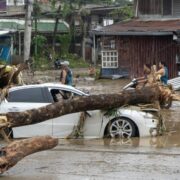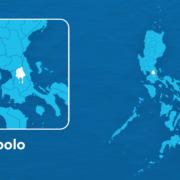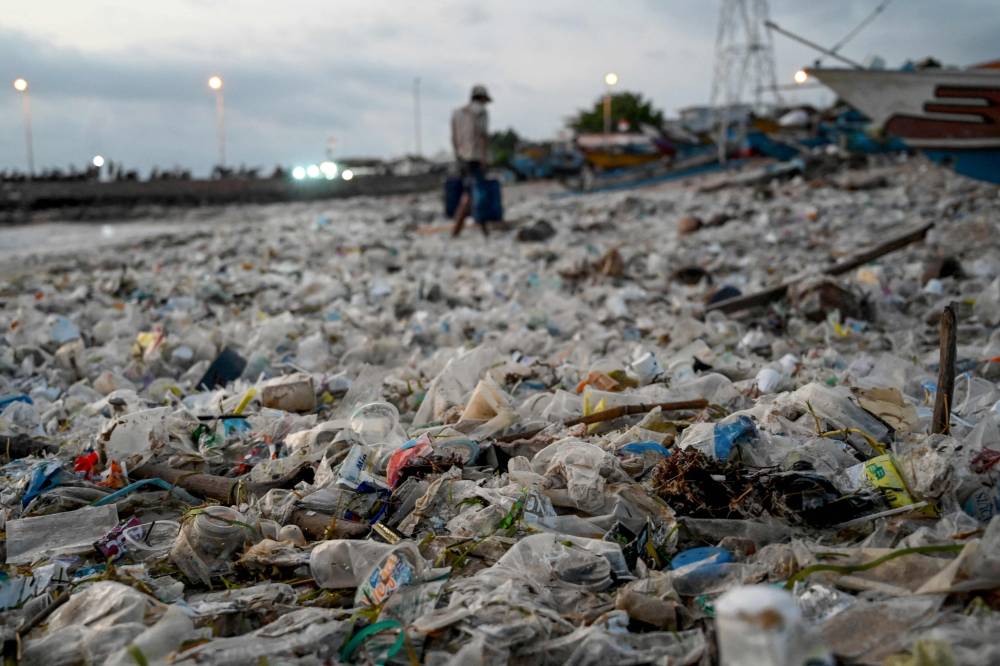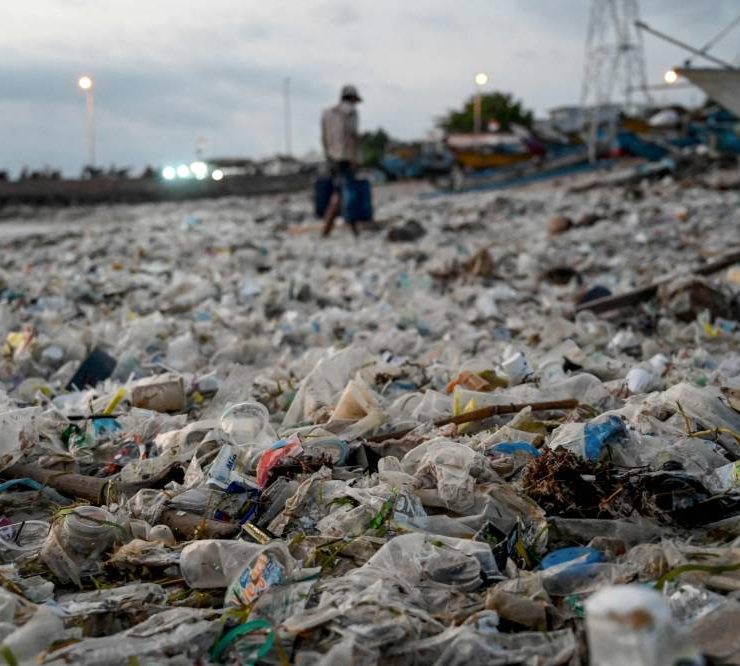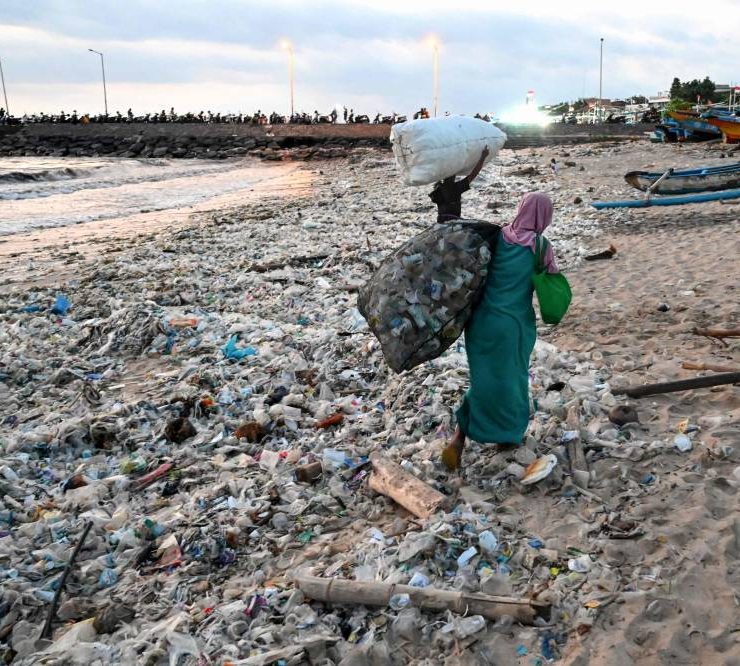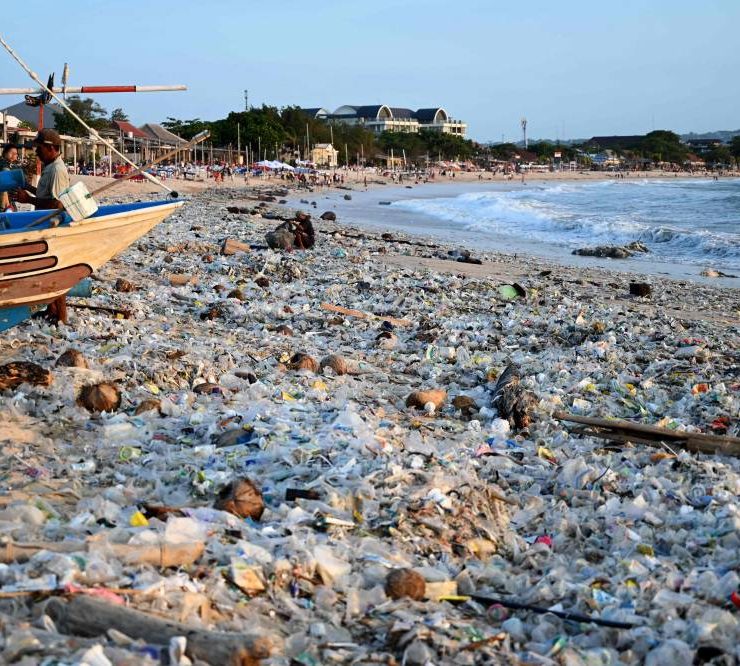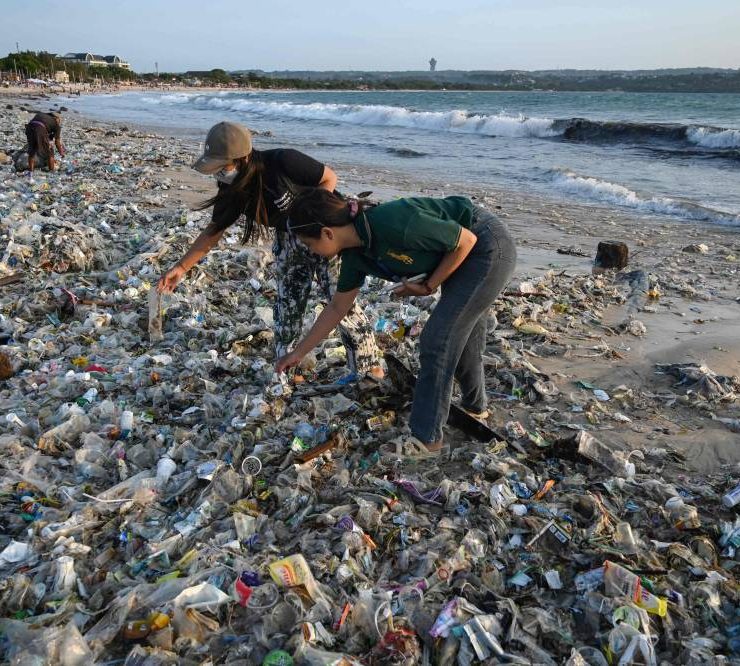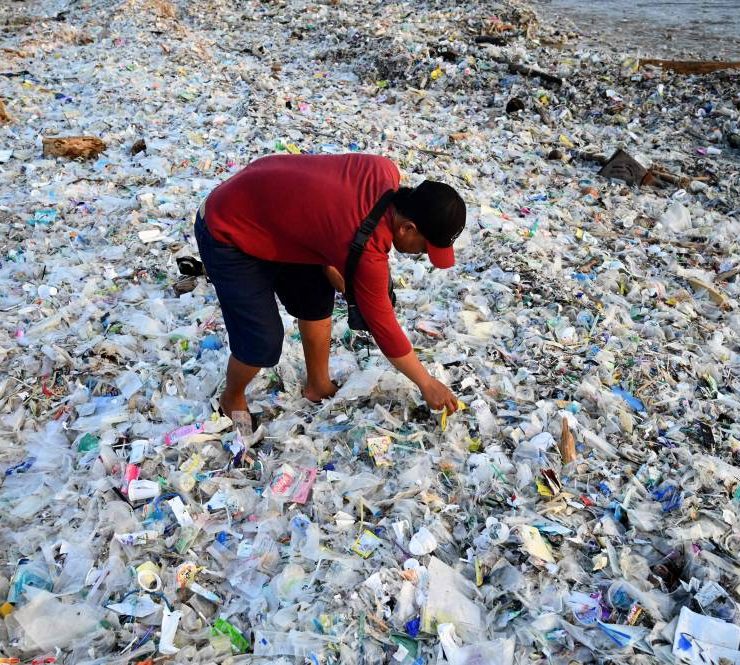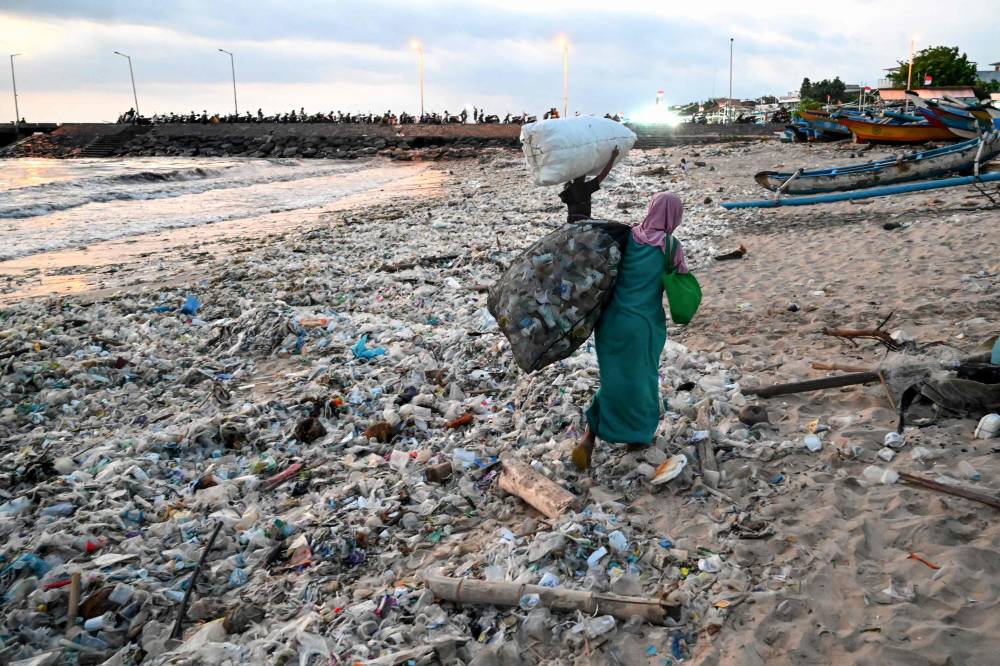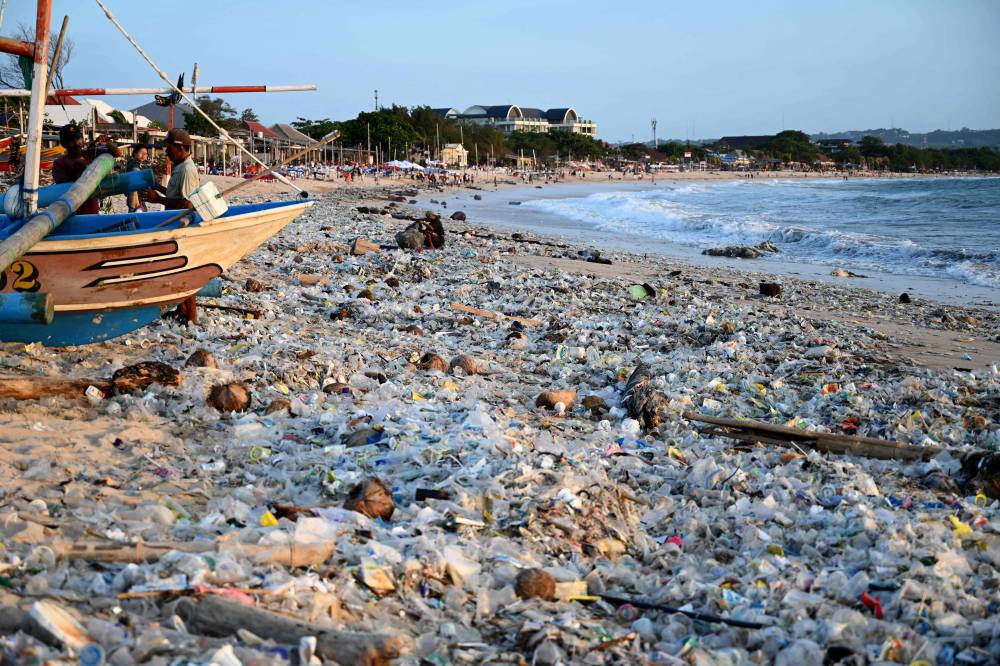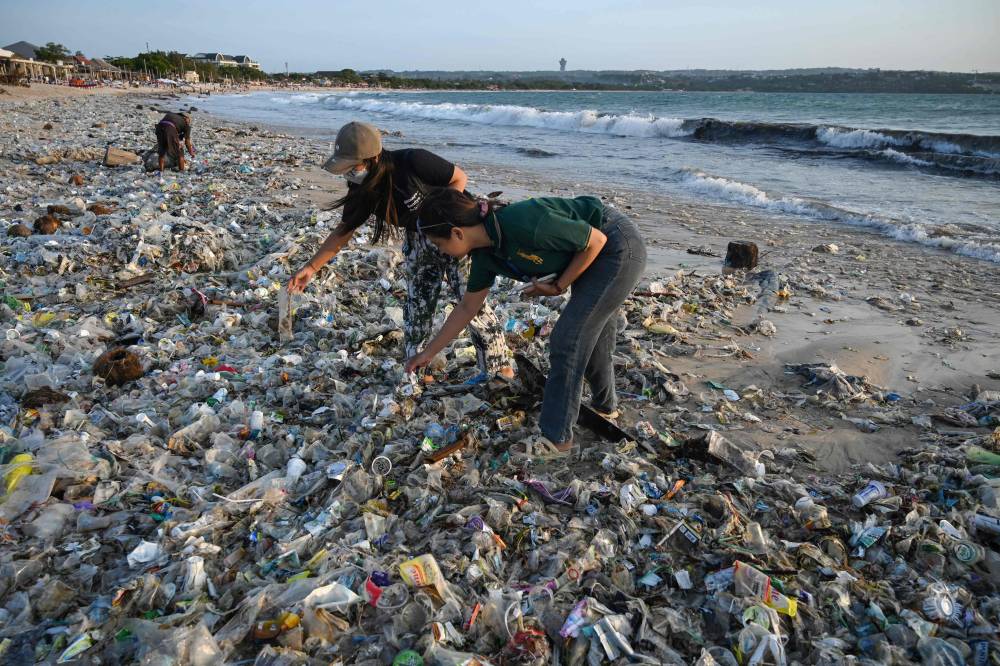Trash tidal wave coats normally pristine Bali beach
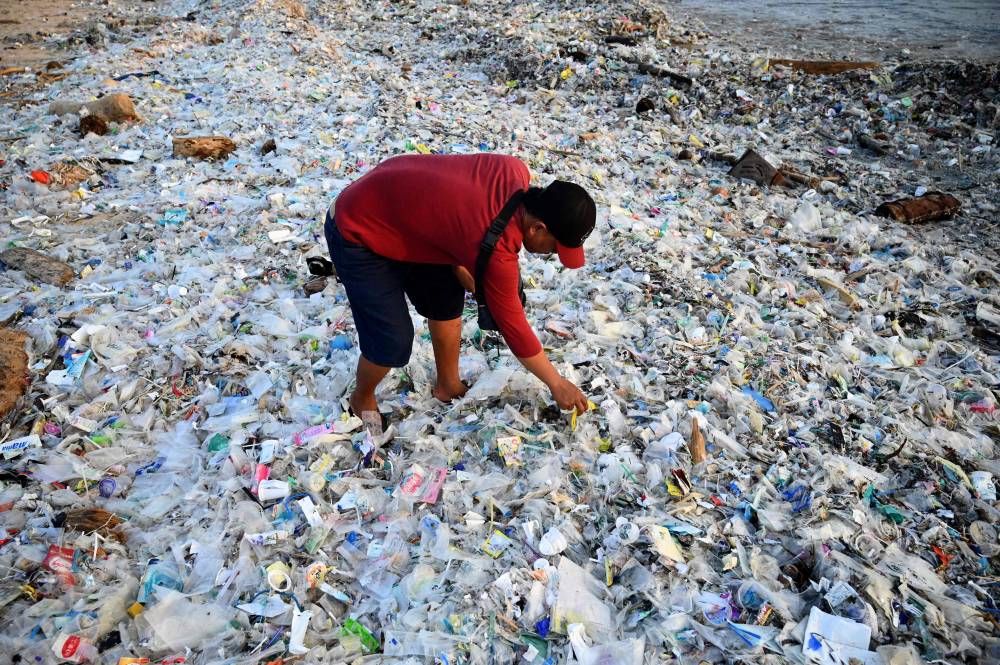
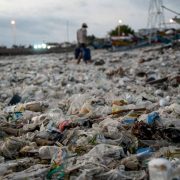
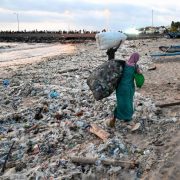
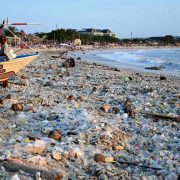
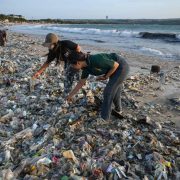 +1
+1 Trash tidal wave coats normally pristine Bali beach
Trash tidal wave coats normally pristine Bali beach
Trash tidal wave coats normally pristine Bali beach
Trash tidal wave coats normally pristine Bali beach
KUTA, Indonesia—A tidal wave of plastic trash has left a normally pristine beach on the Indonesian resort island of Bali awash with garbage, a bleak annual event caused by the monsoon that has left tourists vexed and local officials scrambling to clean up.
The Southeast Asian nation has a mammoth marine waste problem, ranking as one of the world’s biggest contributors of plastic pollution and marine debris.
Images showed Kedonganan beach in Bali’s popular Kuta area covered in discarded plastic bottles, cups and packaging, much of which was driven towards Bali from Indonesia’s cities by prevailing monsoon winds and rains.
“I call on all people in Indonesia, don’t litter in empty lands, don’t throw rubbish on cliffs and rivers because it will end up on sea and will arrive at our beautiful beaches,” said local environment agency official Anak Agung Dalem.
Around 300 officers and six excavators were made available to help clear the trash, he said, with a local NGO also helping out.
For tourists—on whom much of Bali’s economy depends—the garbage-strewn sands were a stark contrast to what they had seen in travel brochures.
“I came here because I heard that it was a very nice place to visit, but what I see is all of this plastic. It’s a real disaster for me,” said Frenchman Denis Le Merre, who flew from Australia.
“It’s impossible to (stay) here. I think I will never come back.”
Nearby, some locals picked through the plastic trash for recyclable material, which can be sold for a few dollars.
‘Take time’
Each year, pounding rains wash away mountains of plastic waste from Indonesia’s cities and bulging rivers into the ocean, with some of it drifting for hundreds of kilometers and ending up on Bali’s beaches.
The trash wave is “something that repeats” on Kedonganan beach and others in the area annually due to the monsoon rains and winds between November and March, according to Dalem.Indonesia, an archipelago of more than 17,000 islands, has pledged to reduce marine plastic waste by 70 percent by 2025.
Tourists were frustrated by the sight of plastic piles washed up on the island’s beaches.
“I think it’s a horrible thing. And for tourists, it’s the reason why a lot do not visit Bali. Because of the trash,” said Russian Danil Kovalev, who has visited the island three times.
“Sometimes I see this on other beaches.”
While concerned about the trash problem, locals were confident the beauty of their island —which attracts millions of visitors every year—would come to the fore once again.
“If the trash is cleaned, this place will be more beautiful to see, and more people will come here,” said Paulina Kaka, who lives in the Kedonganan area.
Dalem called on the tourists to be patient because “the beach cannot be separated” from the ocean.“The rubbish that entered the sea came from all over the regions,” he said. “So we will clean it up but it will take time.” —AFP
AFP is one of the world's three major news agencies, and the only European one. Its mission is to provide rapid, comprehensive, impartial and verified coverage of the news and issues that shape our daily lives.






